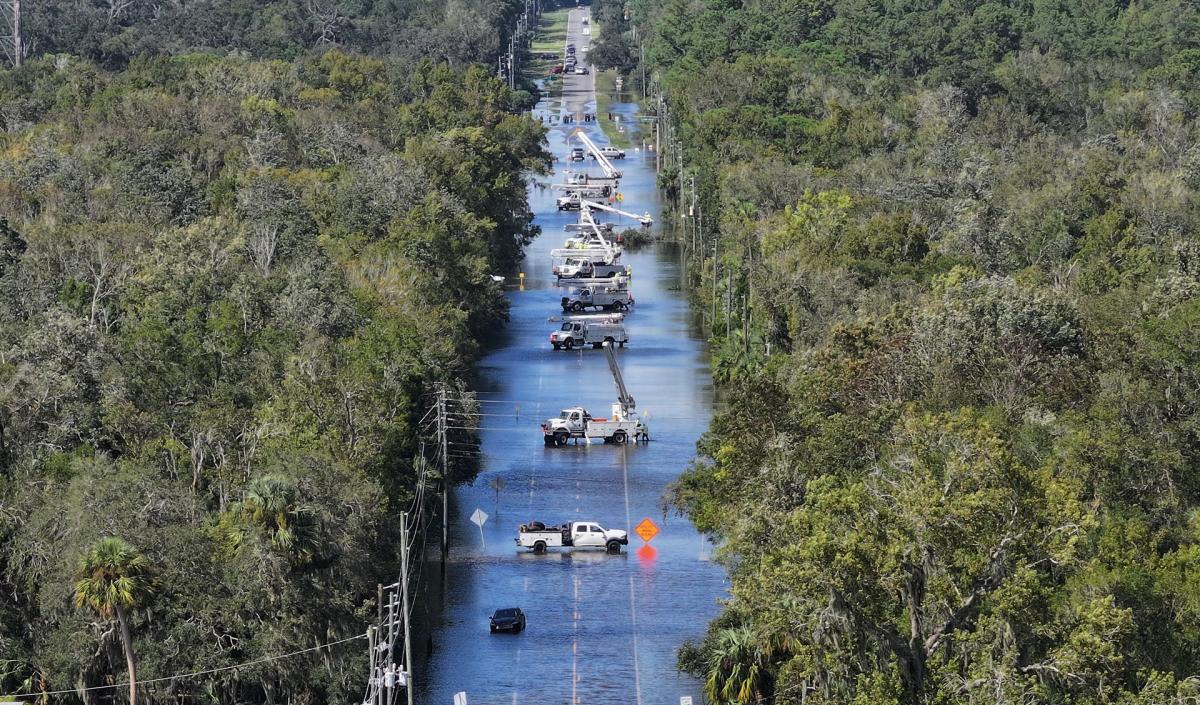ASHEVILLE – As peak leaf season approaches in the mountains, N.C. Gov. Roy Cooper told the Citizen Times that tourists are not wanted in Western North Carolina in the fallout of the historic, devastating floods have been confirmed to have taken 97 lives in the state and devastated the region’s infrastructure.
Cooper said he only wants people who are dedicated to response efforts coming to the region.
“Whenever you come to Western North Carolina you get emergency notifications that we don’t want you here unless you are directly helping with the response,” Cooper told the Citizen Times Oct. 3 in .
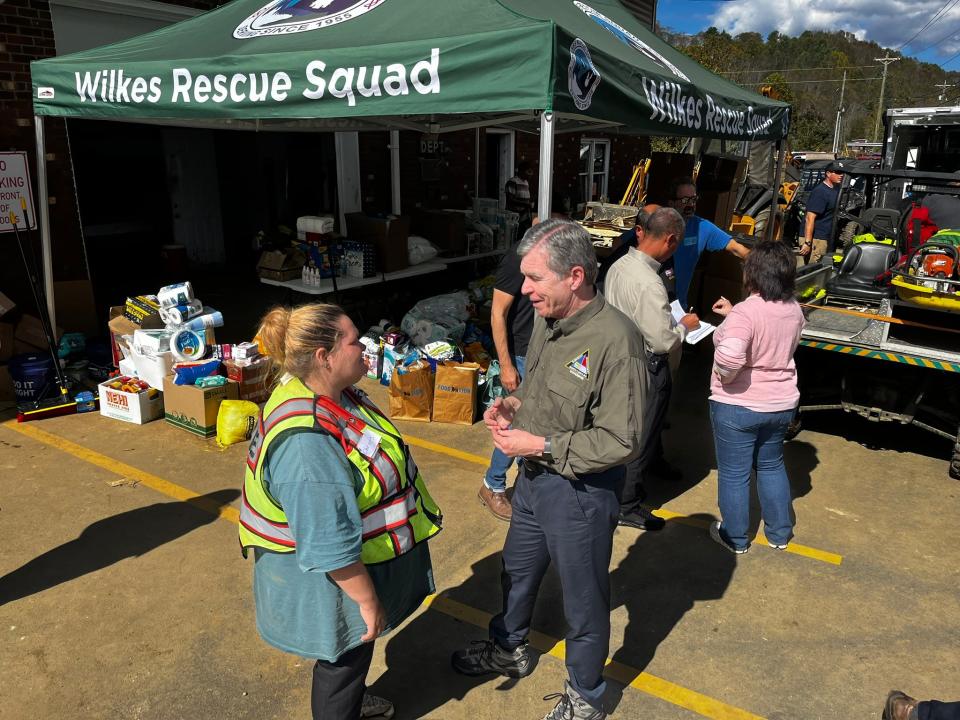
“So we’re continuing to ask people not to come. And that’s tough for an area that was about to enter its peak season for tourism economy. But I’ve talked with people in the Chamber of Commerce, they understand that meeting people’s immediate needs, saving lives, is first,” he continued.
More: Asheville man says he was trapped under a bridge by the rising French Broad River during Helene
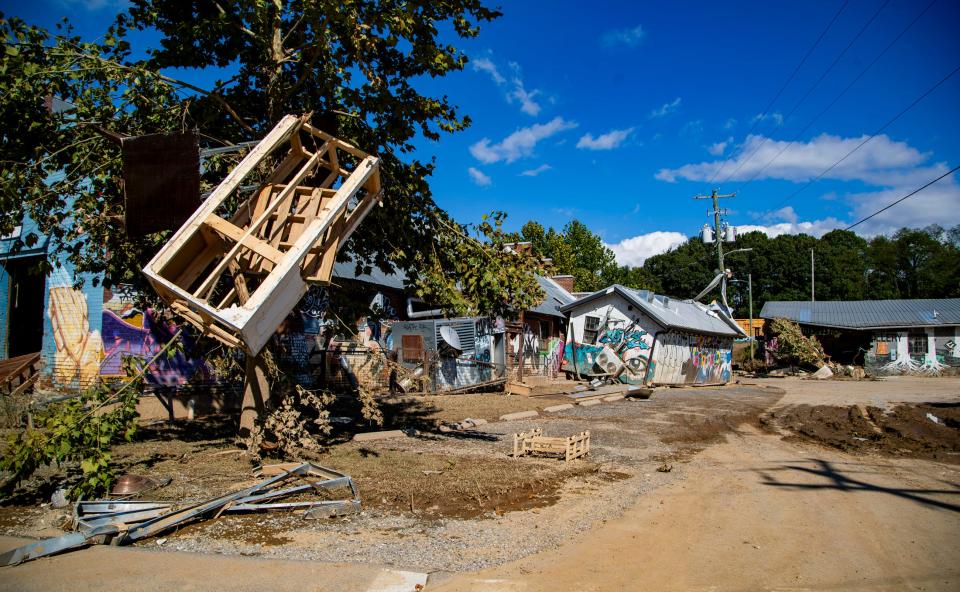

Visit North Carolina, the state’s official destination marketing organization, has continued to issue a travel advisory warning to all who intend to visit the region typically known for its strong tourism industry as the leaves turn in the fall. Currently, the message is: Do not travel to the region as cities and towns continue to battle power and water outages.
“State and local officials strongly advise all motorists avoid travel in Western North Carolina due to the continued challenges and risks from riverine flooding, landslides, slope failures, road closures and downed trees,” the Visit North Carolina advisory, updated Oct. 3, read. “Power and cell phone service outages are also widespread as are shortages of water, food and gas.”
Cooper said the goal is to continue to expand rescue and recovery efforts, which would be hindered and strained by the additional resources and road space required to maintain tourists.
“We want to keep those roads open for utility trucks, for rescue personnel, for medical people, for supplies, for fuel – all of this transportation that is 10 times more than you would normally need roads just to bring in basic necessities for people who don’t have them now,” Cooper said.
More: River Arts District, Foundy businesses closed indefinitely after Tropical Storm Helene
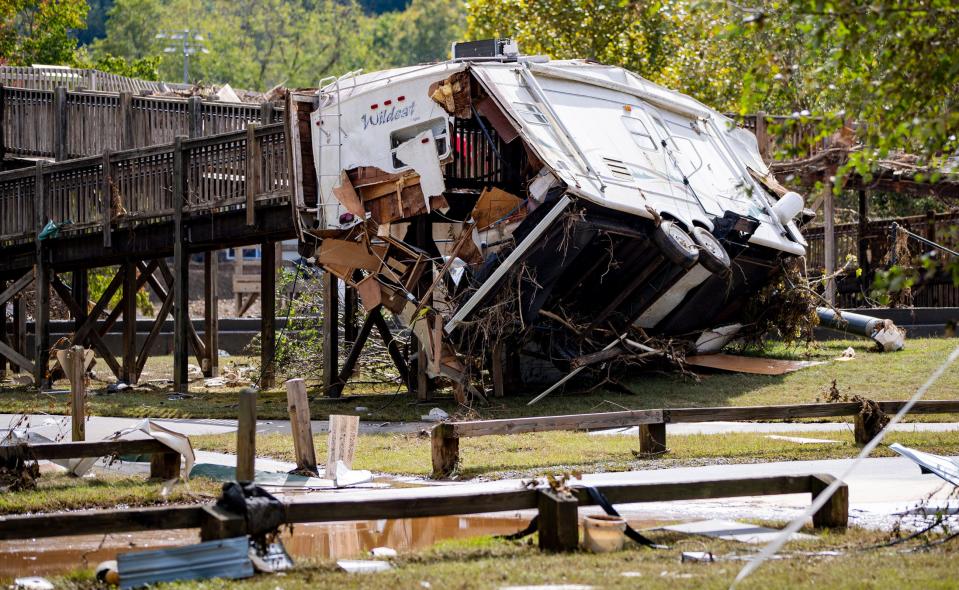

Explore Asheville and the Buncombe County Tourism Development Authority have also put out information regarding resources being provided by the industry at this time. The authority issued an update on the status of the local tourism industry.
“People have always been drawn to Asheville and the mountains of Western North Carolina. We know many people around the country care deeply and want to support our community. It’s not just about what’s happening now, but about planning for the months and years ahead,” the BCTDA and Explore Asheville said in a statement to the Citizen Times Oct. 3.
“Right now, the focus is on taking care of area residents and workers and servicing the many first responders who have answered the call from all over the country — helping those impacted and addressing the economic and emotional toll at hand,” the statement said.
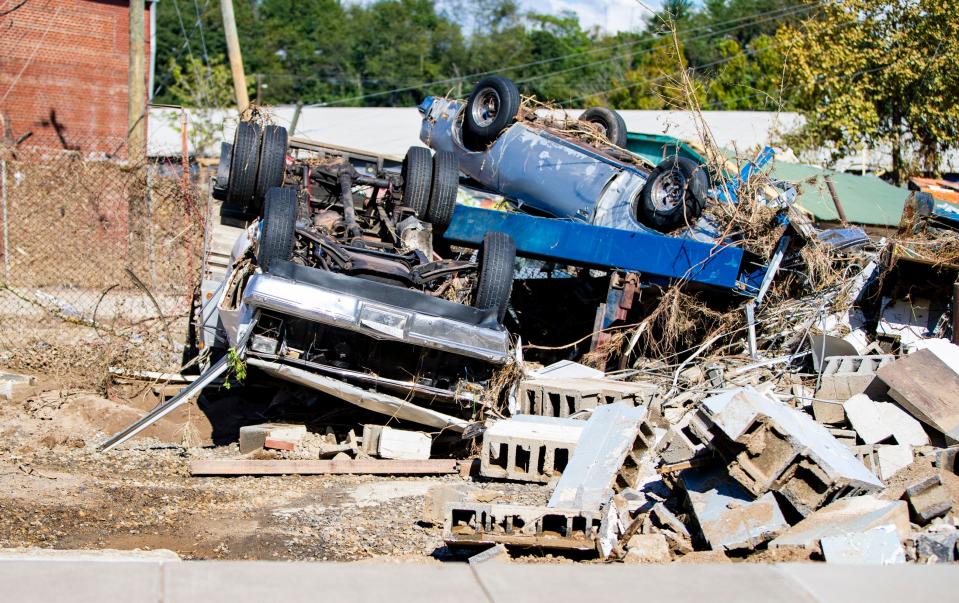

The city of Asheville, along with a swath of other cities and towns across WNC, are facing crisises after the floods caused by Tropical Storm Helene. Water is out for most of the city, and is not expected to return for weeks. Cell service continues to be spotty, if not unreliable. Whole districts of the town, like the River Arts District — a beloved tourism district near the French Broad — remain in ruins.
Through the storm, VisitNC has been working to address visitor displacement throughout the region, fielding 7,300 calls about the topic, according to the advisory. Many regional attractions are currently closed. The entire Blue Ridge Parkway in North Carolina is closed. The Biltmore is closed. The WNC Nature Center is closed. The Omni Grove Park Inn is closed.
While the leaf season had been expected to be vibrant and bring in thousands to the region, boosting local business, this fall is likely going to hurt as businesses attempt to recover.
“Traditionally, fall is the most vibrant time of year for us, both visually across the Blue Ridge Mountains and for our economic vitality. This is definitely going to hurt. Our hearts and minds are focused on supporting our community right now and starting to lay the foundation for recovery in the days and months ahead,” the BCTDA statement finished.
The organization encouraged those who want to support the region to donate to The Salvation Army of Asheville, MANNA FoodBank or United Way of Asheville and Buncombe County.
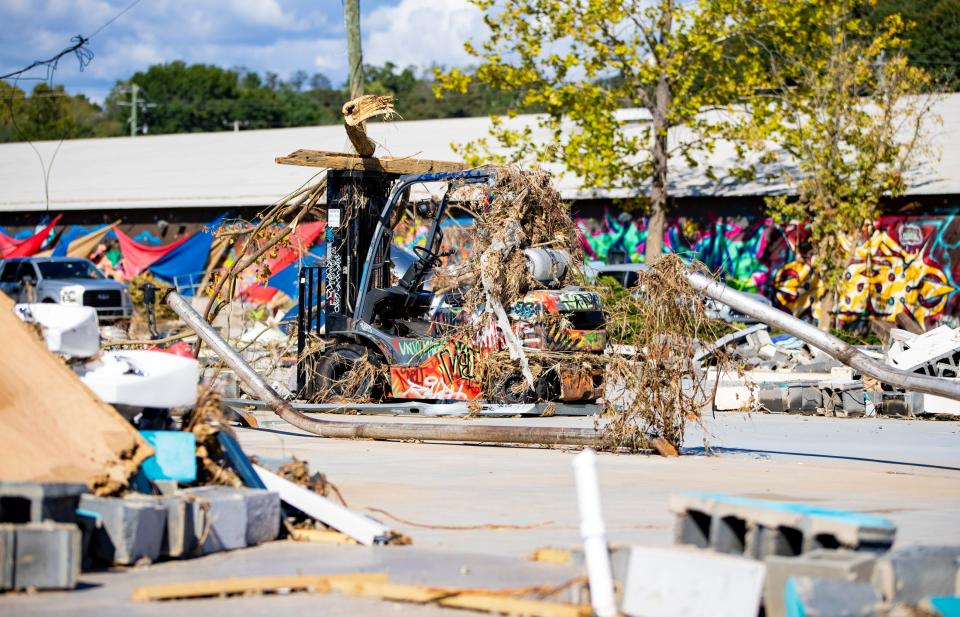

The BCTDA and Explore Asheville also provided information about how to apply for disaster relief unemployment and how to apply for Federal Emergency Management Agency business loans. Here’s what to know:
Info for tourism employees, businesses
-
NC Works Disaster Unemployment (DUA): If your employment in the tourism industry has been impacted by Tropical Storm Helene, you may be eligible for disaster relief from the state of North Carolina.
-
Home Disaster Loans: Loans to homeowners or renters to repair or replace disaster-damaged real estate and personal property, including automobiles.
-
Business Physical Disaster Loans: Loans to businesses for repairing or replacing disaster-damaged property, including real estate, inventories, supplies, machinery, and equipment. Businesses of any size and private, non-profit organizations are eligible.
-
Economic Injury Disaster Loans (EIDL): Working capital loans available to help small businesses, agricultural cooperatives, aquaculture businesses, and non-profit organizations of all sizes meet their financial obligations during a disaster recovery period.
USA Today reporter Chris Kenning contributed to this story.
More: After Western NC Helene floods, small town starts recovery 1 shovel of mud at a time
More: North Carolina live updates: Search for missing continues as deaths rise
Will Hofmann is the Growth and Development Reporter for the Asheville Citizen Times, part of the USA Today Network. Got a tip? Email him at [email protected]. Consider supporting this type of journalism with a subscription to the Citizen Times.
This article originally appeared on Asheville Citizen Times: NC Gov. Cooper to tourists after Helene: ‘We don’t want you here’






